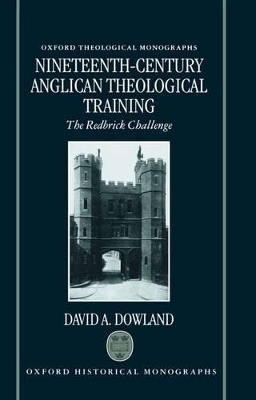Oxford Theological Monographs
1 total work
David Dowland presents one of the first analytical accounts of Anglican theological training during its formative period, the nineteenth century. Until this time Oxford and Cambridge had been recognized as the most desirable sources of Anglican clergymen, but there was to be an upsurgence of little-known colleges attended by lower-middle-class ordinands which cut across the assumption that the training received at the fashionable colleges was superior. Dowland
discusses the official attitudes towards the innovation of training large numbers of middle-class and lower-middle-class men for the ministry in an industrial age where a shift of power to the lower classes was widespread.
discusses the official attitudes towards the innovation of training large numbers of middle-class and lower-middle-class men for the ministry in an industrial age where a shift of power to the lower classes was widespread.
